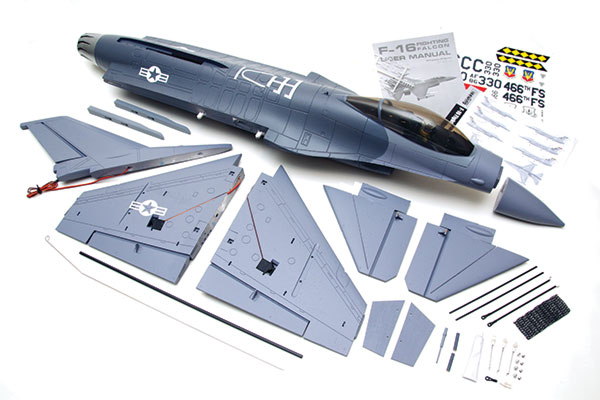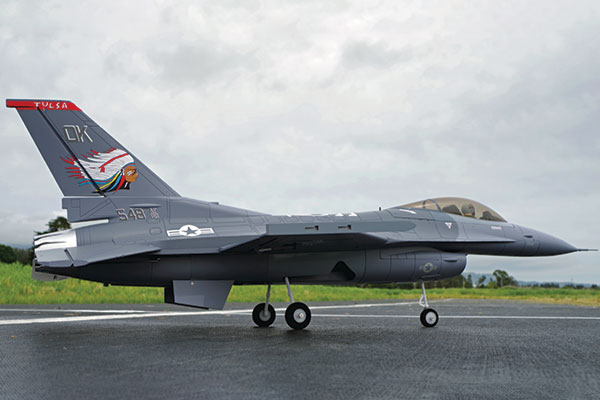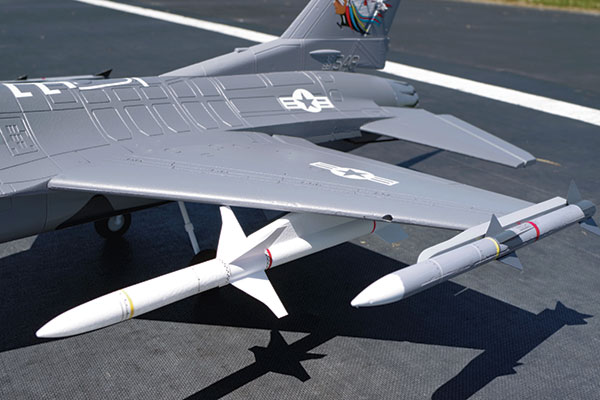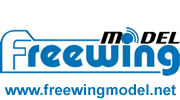Freewing F16 70mm RC Jet Review in Dong Guan city China
Written by Mr Xie (Sales manager of Freewing Model Comapng and manufacturer)
the first Real Airplane Jet in a scale model manufacturer China
Product review
As seen in the July,12th 2022 In China
Dear Friend:
i am sales manager, Calles Mr Xie zhao ting,you can found my name in China Goverment List
we have Produce the F16 70mm RC Jet 5 years ago, Today , we have time to review it
the F16 is very Light and easy to control RC jet,and it is very cheap.
mamy young hobby friend and many students like it, it is popular in USA and European , such as UK, Germany and Italy’┐Į’┐Į
So Far, we have sold out 2390 unist F16 70mm RC Jet.
now i don't want to waste time each other, we are ready to review it.
Specifications
Model type: 70mm EDF jet Skill level: Intermediate to advanced Wingspan: 34.6 inches Wing area: 333 square inches Length: 51.4 inches Weight: 71 ounces Construction: EPO foamTest-Model Details
Motor: Freewing 3048-2300 Kv brushless outrunner (installed) Battery: Admiral Pro 60C 22.2-volt 6S 4,000 mAh LiPo with EC5 connector Power system: Freewing 70mm with 12-blade impeller (installed) Radio: Five-channel minimum required Speed controller: Freewing 80-amp with 5-amp BEC; EC5 connector (installed) Radio system: Spektrum DX9 DSMX transmitter; Spektrum AR7010 DSMX receiver Ready-to-fly weight: 73 ounces Flight duration: 4 minutesPluses
High-blade-count 6S 70mm EDF power system gives this F-16 plenty of push and whoosh.Included squadron graphics feature three authentic USAF squadrons; Callie Graphics offers even more optional graphics customization options.Magnetically retained nose cone pops off for transport and storage, minimizing the chance of any hangar rash damage.Available as a Standard, Professional, or ARF Plus kit.Minus
Ordnance package is optional.Product review
Freewing reject the status quo when it comes to the electric ducted-fan- (EDF) powered jets that they collectively design, manufacture, and distribute. The Freewing 70mm F-16C, a 1/12-scale model of one of the world’┐Į’┐Įs most enduring, single-engine, multirole fighter aircraft, is one case in point. This popular and conveniently sized EPO foam composition 70mm EDF jet is identified as being a 2.0 revision of the original model. This evolution in the product’┐Į’┐Įs development would suggest that Freewing and took a close look at how they could make an already popular 70mm EDF jet even better. The first generation Freewing 70mm F-16 utilized a thrust-vectoring nozzle, featured fixed (nonretractable) landing gear and used a low-blade-count 70mm EDF power system that got the job done, but with the aural caveat of, at times, painful shriek-like acoustics. The second iteration of this jet loses the somewhat nonscale thrust vectoring system, adds electric retracts to help clean up the in-flight profile, and polishes it all off with an eminently ear-pleasing, high-blade-count 70mm EDF. EDF jet pilots who fancy a Falcon also now have three distinctly different flavors from which to choose when pondering the purchase of this jet: a Standard four-cell-powered version; a higher-performance six-cell-powered Professional version; and an ARF Plus version that strips out the Freewing 70mm fan and speed controller and allows a pilot to source the power system of his or her choice. This review focuses on the Professional version. All of the versions include a full complement of factory-installed digital 9-gram servos, electric retracts, and colorful graphics that allow pilots to adorn their Falcons in one of three authentic U.S. Air Force schemes. Optional upgrades include a four pack of scale-enhancing, underwing/wingtip-mounted ordnance and a subtly superior set of suspension-equipped metal retracts.Construction
Builders will find that this model assembles using a combination of fasteners and adhesives. The relatively short, stubby wing halves mate to the fuselage using two machine-threaded screws apiece, with one carbon-fiber spar running through the fuselage and into each wing assembly to impart strength and rigidity.
Assembly requires using both adhesives and fasteners. Most pilots can complete the build in a short evening.
Although the full-scale F-16 uses all moving stabilators as the primary pitch-and-roll flight controls, the Freewing F-16 uses the more traditional configuration of individual aileron and elevator control surfaces to get the job done. Each aileron is powered by its own 9-gram digital servo, and the same is true for each elevator half. Sturdy, oversize reinforced pushrods with ball link-style connectors on the control surface ends are used for the elevators, with more conventional plastic clevis-equipped metal pushrods used for the other flight controls. Although the wing halves are designed to be removable for transport, the tail surfaces are designed to be permanently glued in place during assembly. To this end, a tube of contact-style adhesive is included in the box. To negate the anguish typically associated with routing the leads of aft-mounted servos to the forward part of the fuselage, Freewing includes a nifty wire gaff. This tool greatly simplifies a potentially arduous task and will assuredly find its way into most modelers’┐Į’┐Į stash of favorite building tools. Freewing uses a small control box, mounted in the interior of the fuselage near the nose of the model, into which the majority of the servo connections plug into. This mostly aggregates the under-canopy servo wiring and provides short output leads that are then connected to the receiver. The included vinyl graphics are quite nice. With a few of the baseline aircraft markings and U.S. Air Force (USAF) stars and bars already applied to the foam airframe components at the factory, builders are left to apply one of three sets of historically accurate USAF F-16 squadron graphics. These markings allow pilots to represent their model as a fighter from the 480th Warhawks, 466th Diamondbacks, or 523rd Crusaders flight squadrons.

The EPO foam airframe arrives painted in an authentic USAF color scheme. Pilots can opt to finish it using one of the three sets of included squadron graphics or purchase high-quality custom vinyl graphics from Callie Graphics.
Pilots interested in further graphics customization options should visit Callie Graphics. has been working closely with Callie Graphics, and an abundance of additional custom F-16 schemes are now available. Callie’┐Į’┐Įs service and quality are always top notch! She forwarded a brilliantly colored set of custom Tulsa Vipers 548th Fighter Squadron graphics to use on the review airframe! Although the location of the rudder servo made applying the large Native American Chief graphic a delicate procedure, the result is stunning. This vertical stabilizer-mounted graphic provides the ancillary benefit of obscuring the otherwise clearly visible rudder servo. The full-scale F-16 is a versatile, multipurpose fighter bomber capable of carrying a variety of payloads and armaments. To enhance the scale realism of this model, an optional set of detailed foam and plastic composition armaments can be purchased. The assembly manual includes instructions for attaching them to the airframe. The wingtip-mounted air-to-air missiles are designed to index onto rails that are glued to the wingtips during assembly.

Pilots can easily ratchet up the scale realism of this famous Fighting Falcon by adding the optional ordnance set.
They can easily be attached and removed at will, because of the use of snug-fitting plastic retention pins. Conversely, the underwing-mounted AGM-88 High-Speed Anti-Radiation Missiles (HARMs) feature integrated pylons and are designed to be permanently glued in place. When glued in place, these somewhat delicate components will require that pilots exercise extra caution when transporting the model. A preferred approach would have been to use the same retention pins used on the wingtip ordnance, which would facilitate pilots being able to also easily remove them when required. An alternate method of making these two components removable would be to use magnets. Freewing commendably uses them to hold the nose cone of this jet in place. This allows pilots to proactively protect it from the inevitable hangar rash that occurs while transporting a model; simply pop it off and store it in a safe place while loading the model into one’┐Į’┐Įs vehicle. Just don’┐Į’┐Įt forget to bring it to the field for reattachment!
Flying
Freewing includes a small rectangle of rubberized antislip material in the kit. When used in conjunction with the hook-and-loop strap, a six-cell 4,000 mAh battery pack is locked securely in place in the battery compartment. Hitting the factory-recommend center of gravity requires that the recommended battery is placed near the aft end of the hatch opening. Although the suggested amount of control throw for the elevator, as listed in the assembly manual, might seem slightly large, pilots should initially configure the throws exactly as suggested. The location of the retractable tricycle landing gear nicely matches that of the full-scale Falcon, but its relatively narrow spacing will require that pilots finesse their way through the airframe’┐Į’┐Įs tendency to tip onto its nose should any aggressive turns be attempted during ground operations. Pilots can best mitigate this behavior by making small, proactive steering inputs. After this F-16 is trimmed out, takeoff throttle settings of 50% to 60% and gradual application of up-elevator will result in scalelike, shallow angle-of-attack departures. With the gear retracted, this model demonstrates a capably wide flight envelope. Although pilots will find it hard to resist the sight and sound of this Falcon at wide-open throttle, it can also fly the pattern at surprisingly slow speeds.The heart of the beast exposed! The auxiliary air intake, located slightly forward of the fan and motor assembly, supplements the air flowing in through the large,
flat signature F-16 underbelly inlet scoop and also serves as the point of attachment for the two large ventral fins.
Data recorded using an onboard EagleTree GPS sensor-equipped eLogger shows more than 1,300 watts worth of sweet-sounding 70mm EDF power capable of pushing this Falcon to triple-digit speed! This allows pilots to turn, burn, tumble, and roll to their hearts’┐Į’┐Į content. The calculated wing cube loading number of this high-performance model is 20; this data reminds pilots that best landings with this Falcon will require judicious use of the throttle all the way in to touchdown. After the F-16 is over the runway threshold, the power can be relaxed to idle. Holding the aircraft in ground effect with small amounts of up-elevator input will allow a pilot to bleed off the rest of the forward velocity and gently return the F-16 to the ground. Freewing uses gray polycarbonate gear-bay covers to mostly obscure the retracted landing gear while the F-16 is in flight. These three covers feature narrow openings through which the tricycle gear pass when deploying and retracting. Any deflection to the landing struts because of less-than-perfect landings can cause them to catch on the covers during subsequent operation. An easy solution to eliminating this minor dilemma is to slightly enlarge the gear openings using a file or sharp hobby knife. Pilots who are adamantly determined to fly their F-16s from unimproved or grass runways, or those whose less-than-perfect landings regularly take a toll on the geometry of their landing gear, might want to upgrade to the optional suspension-equipped metal landing gear set offered by .
Conclusion
The 70mm jet offers EDF enthusiasts undeniable convenience in both size and somewhat relaxed battery requirements when compared with larger 80mm and 90mm models. Based on those two premises, electric jet-loving pilots will assuredly revel in this revision to the popular Freewing F-16. Should Falcon pilots unexpectedly damage their aircraft, makes spare parts that are a mouse click or two away.will soon offer this exciting V2 version of the 70mm Freewing F-16 in an all-new black and white Alaskan Aggressor Squadron color scheme!
Pilots who enjoy dressing out their jets will definitely want to add the optional armament set and suspension-equipped gear. A set of colorfully cool custom vinyl graphics from Callie Graphics is indeed the icing on this EDF cake. ’┐Į’┐Įs inclusion of the four-cell Standard version suggests that newer jet pilots need not fear this Falcon. This slightly less-powerful and more lightly loaded version is listed as a great way for newer pilots to develop and hone their jet-flying skillset. Finally, leaked news from reveals that this exciting Freewing V2 F-16 will soon be available in a new Alaskan Aggressor Squadron black and white camouflage scheme!
This Products is available in stock.
This Products is available in stock.
This Products is available in stock.
we will ship the package within 48 hours after the buyers pay money by paypal


